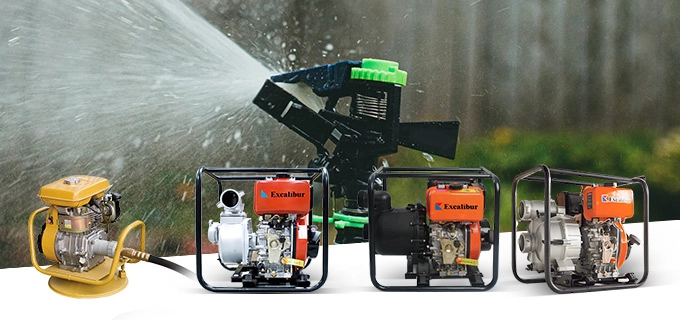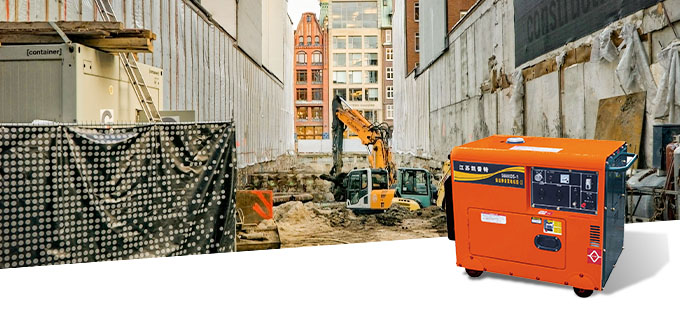Water pumps are integral in a variety of applications, ranging from agricultural irrigation to the dewatering of construction sites. When it comes to selecting the appropriate pump for a specific task, understanding the differences between semi-trash water pumps, chemical water pumps, flexible shaft water pumps, and diesel clear water pumps is essential. Each type has unique characteristics and advantages to meet specific needs and environments.
Semi-Trash Water Pump
Semi-trash water pumps are designed to handle water containing small debris, making them ideal for applications where water may carry solids or semi-solid materials. These pumps are typically used in construction sites, mining, and agricultural applications. Their semi-trash capability allows them to handle dirty water efficiently, preventing clogs and blockages. Semi-trash pumps are typically gasoline-powered and are known for their versatility and durability in challenging environments.
Chemical Water Pump
Chemical water pumps are specifically designed to handle corrosive or abrasive liquids, making them suitable for applications such as chemical transfer or agricultural spraying. These pumps are constructed from corrosion-resistant materials to ensure durability and reliability in harsh chemical environments. Chemical water pumps are crucial for industries dealing with fertilizers, pesticides, and other corrosive substances. They come in various configurations, such as diaphragm pumps or centrifugal pumps, offering flexibility for different applications.
Flexible Shaft Water Pump
Known for their mobility and adaptability, flexible shaft water pumps are highly regarded in the industry. These pumps use a flexible shaft to transmit power from the engine to the pump, allowing for greater mobility and ease of use in various situations. They are particularly useful in tight spaces or remote locations where traditional pumps may struggle to access. Flexible shaft water pumps are commonly employed in agriculture, gardening, and emergency response situations due to their compact design and easy maneuverability.
Diesel Clear Water Pump
Diesel clear water pumps are powerful, reliable, and suitable for transferring large volumes of clean water. These pumps find frequent application in industrial and agricultural environments, serving purposes such as irrigation, flood control, and water supply. Diesel engines power these pumps, providing robust performance and fuel efficiency. The clear water designation indicates that these pumps are best suited for handling clean water without significant debris or solids. Diesel clear water pumps are preferred when a high flow rate and extended operation are critical requirements.
| Feature | Semi-Trash Water Pump | Chemical Water Pump | Flexible Shaft Water Pump | Diesel Clear Water Pump |
| Application | Handling water with small debris | Corrosive liquids, chemicals | Versatile, various water types | Clean water transfer, high-flow tasks |
| Debris Handling | Durable materials for toughness | Corrosion-resistant materials | Diverse materials, flexibility | Robust materials for durability |
| Materials | Durable materials for toughness | Corrosion-resistant materials | Diverse materials, flexibility | Robust materials for durability |
| Mobility | Portable | Generally portable | Highly portable, flexible shaft | Moderate to less portable due to engine |
| Versatility | Versatile in handling debris | Specialized for corrosive liquids | Suitable for various applications | General use for clean water tasks |
| Power Source | Gasoline-powered | Electric or gas-powered | Gas-powered with flexible shaft | Diesel engine |
| Weight | Moderate | Moderate | Lightweight and compact | Heavier due to diesel engine |
| Cost | Cost-effective | Moderate to high | Moderate | Higher upfront cost, potential long-term efficiency |
| Maintenance | Requires minimal maintenance | Regular maintenance required | Moderate maintenance | Regular maintenance due to engine |
| Use Cases | Construction sites, mining, agriculture | Construction sites, mining, agriculture | Remote locations, emergency response | Irrigation, flood control, water supply |
Comparative Analysis
Performance and Capacity
- Semi-trash water pumps excel in handling water with small debris, providing effective dewatering in challenging environments.
- Chemical water pumps prioritize resistance to corrosive materials, making them indispensable in industries dealing with chemicals and fertilizers.
- Flexible shaft water pumps offer mobility and flexibility, making them ideal for situations where portability is essential.
- Diesel clear water pumps are designed for high-flow applications with clean water, ensuring efficient water transfer in industrial and agricultural settings.
Versatility
- Semi-trash water pumps are versatile and capable of handling a range of water conditions with small debris.
- Chemical water pumps are specialized for corrosive liquids, limiting their versatility but ensuring reliability in specific applications.
- Flexible wave pumps have a wide range of uses due to their compact design and ease of use, making them suitable for a variety of environments.
- Diesel clear water pumps are versatile in handling clean water for a wide range of applications but may not be suitable for scenarios with significant debris.
Portability
- While semi-trash water pumps offer portability, they might not be as lightweight as alternative choices.
- Chemical water pumps are relatively portable, but the materials used for corrosion resistance may add some weight.
- Flexible shaft water pumps are designed for maximum portability, making them ideal for remote or challenging locations.
- Diesel clear water pumps, while powerful, may be less portable due to the diesel engine’s weight.
Cost and Maintenance:
- Semi-trash water pumps are typically budget-friendly and demand minimal maintenance.
- Chemical water pumps may be more expensive due to the specialized materials used for corrosion resistance.
- Flexible shaft water pumps offer a balance between cost and performance, with moderate maintenance requirements.
- Diesel clear water pumps can be more expensive upfront, but their durability and efficiency may justify the investment over time.
Conclusion
Choosing the appropriate water pump for your particular requirements is essential, and it’s crucial to take into account the distinctive features and specifications of each type. Whether you prioritize handling debris, corrosive substances, portability, or high-flow clean water transfer, understanding the strengths and limitations of semi-trash, chemical, flexible shaft, and diesel clear water pumps will guide you toward the most suitable choice for your application. Each type plays a vital role in various industries, contributing to efficient water management and fluid transfer across diverse settings.




